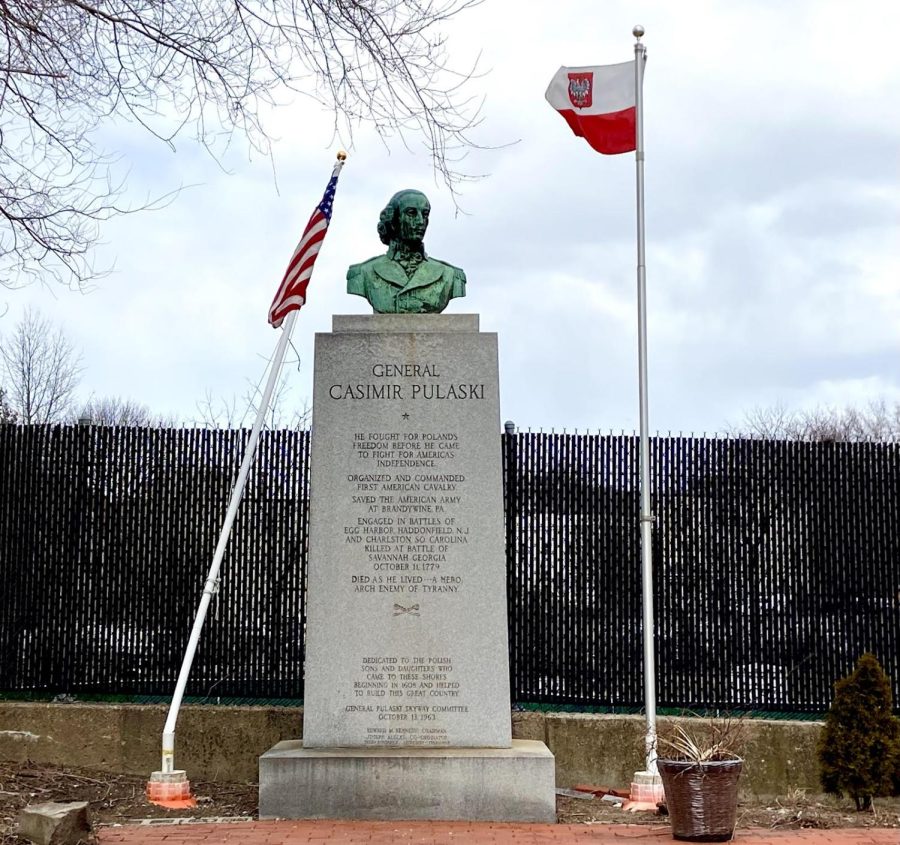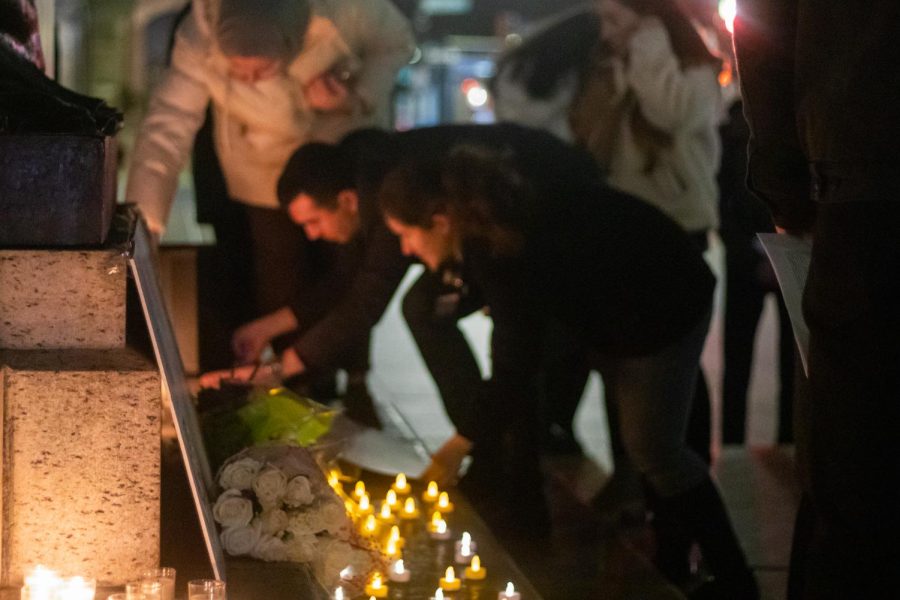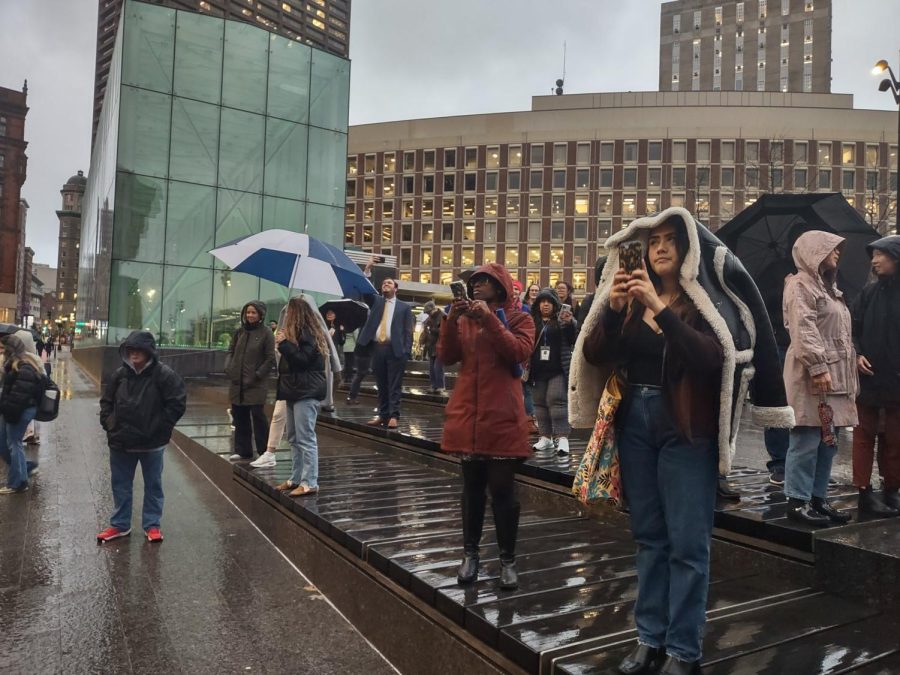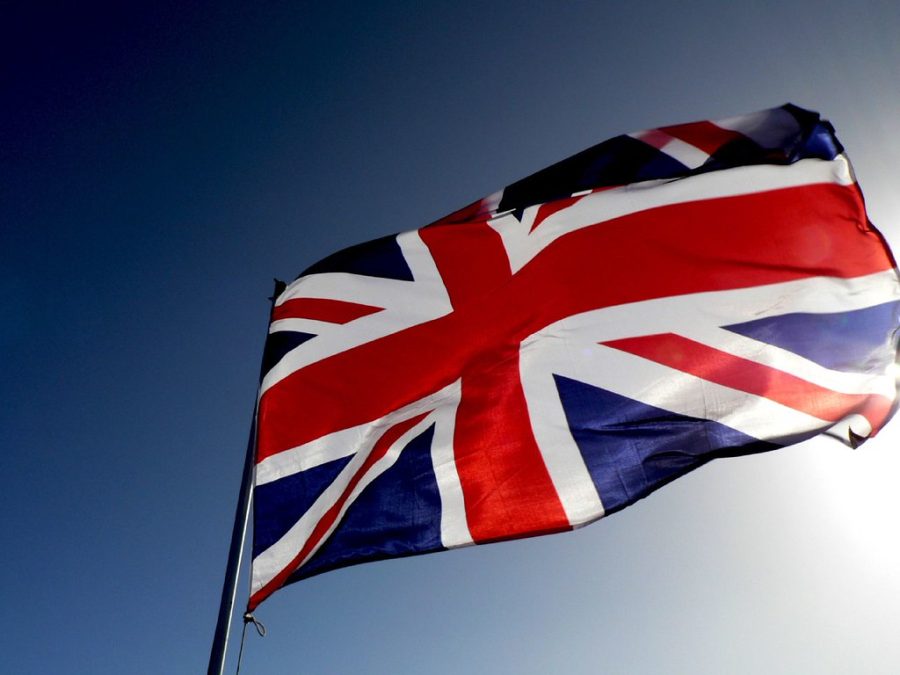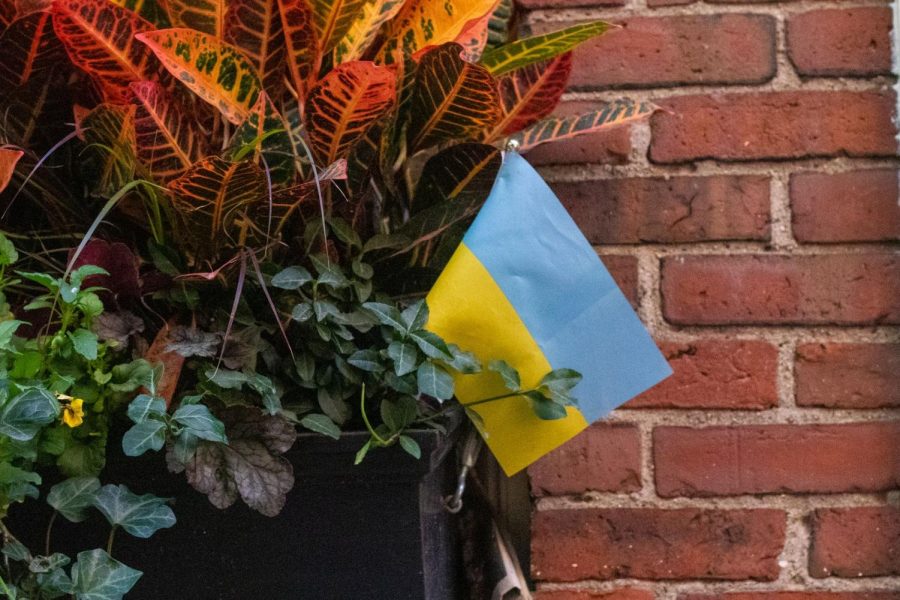A group of U.S. officials traveled to Poland to express their support of the Polish government and the millions of Ukrainian refugees that fled to Poland after the Russian invasion of Ukraine last month.
The group consisted of President Joe Biden, several members of Congress and several state legislators. Biden delivered a speech March 26 at the Royal Castle in Warsaw, where he reaffirmed the U.S. commitment to support their Polish allies and the Ukrainian people. He also called on the rest of the world to do the same.
“John Paul brought the message here to Warsaw in his first trip back home as Pope in June of 1979,” Biden said in his speech. “It was a message about the power — the power of faith, the power of resilience and the power of the people.”
During his speech, Biden referenced the words of Pope John Paul II, who was the first Pope from Poland and who was seen as a national hero due to his support of the Polish resistance against communism and the 45-year Soviet Union occupation of the majority Catholic country.
“In the face of a cruel and brutal system of government, it was a message that helped end the Soviet repression in the Central land and Eastern Europe 30 years ago,” Biden continued. “It was a message that will overcome the cruelty and brutality of this unjust war. We’re all grateful in America and around the world for Lech Wałęsa.”
While Pope John Paul II may have been the spiritual leader during the Polish resistance, Lech Wałęsa was the political leader. In 1980, Wałęsa founded an anti-government and anti-communist trade union in the Polish port city of Gdańsk, which became known as Solidarność, or Solidarity.
“Ten years later, the Soviet Union collapsed, and Poland and Central and Eastern Europe would soon be free,” Biden said. “Nothing about that battle for freedom was simple or easy. It was a long, painful slog fought over not days and months, but years and decades.”
Despite the Soviet Union and the communist government of Poland attempting to forcefully end the Solidarity movement by enacting martial law, they failed and communism in Poland was brought to an end in 1990, without the outbreak of another war.
“Today, Russia has strangled democracy — has sought to do so elsewhere, not only in its homeland. Under false claims of ethnic solidarity, it has invaded neighboring nations,” Biden continued.
Biden then reiterated the stance of the U.S. and NATO against the aggressive actions of Russian President Vladimir Putin on Ukraine, who Biden accused of using war and propaganda as a way of securing his power and control, as well as Russia’s influence over countries that were formerly a part of the Soviet Union.
“The Kremlin wants to portray NATO enlargement as an imperial project aimed at destabilizing Russia,” Biden said. “Nothing is further from the truth. NATO is a defensive alliance. It has never sought the demise of Russia. American forces are not in Europe to engage in conflict with Russian forces. American forces are here to defend NATO Allies.”
Due to the ongoing war between Ukraine and Russia, the Polish government has been on high alert. As Ukraine’s western neighbor and the largest NATO member in Central and Eastern Europe, Poland has become recognized as a leader in both NATO and the European Union in its diplomatic and humanitarian support to Ukraine, as well as its staunch political stance against Russia and its decision to send arms to Ukraine.
Additionally, millions of Ukrainian refugees have fled to Poland since the Russian invasion of Ukraine’s Crimean Peninsula and support grew for Russian separatists in the Donbas region in 2014, with nearly two million more arriving since the Russian invasion of the rest of the country last month. The Polish population has been very hospitable to the refugees with many offering them to stay in their own homes.
Among the group of U.S. officials that visited Poland were U.S. Rep. Lori Trahan and Massachusetts Rep. Stephen Lynch, who were joined by U.S. and Polish military and humanitarian groups, where they met with Ukrainian refugees in order to help provide them aid such as food, clothing and housing. Trahan announced her arrival in Poland on Twitter.
“I spent the weekend in Poland for the first stop of our bipartisan CODEL to Ukrainian border countries,” Trahan said. “The footage all of us have seen of Ukrainians fleeing for their lives over the past three weeks has been difficult to watch, but being on the ground is truly heartbreaking.”
Both Trahan and Lynch have been supporters of the Ukrainian government and its people since the invasion. Trahan has called Vladimir Putin a “rogue, power hungry dictator” and both Trahan and Lynch support placing military and economic sanctions on Russia until all military operations in Ukraine are halted.
“Putin’s cruel and immoral war has had consequences many of us could never fathom,” Trahan said. “The world has an obligation to be here to support these incredibly brave Ukrainians doing everything in their power to defend their freedom and democracy.”
Trahan and Lynch have also applauded the Polish government for accepting Ukrainian refugees, as well as for sending arms and humanitarian aid to Ukraine. Poland has also enacted sanctions on Russia and even threatened to blockade its ports. The Polish Prime Minister Mateusz Morawiecki recently thanked the U.S. for their support, and called on other NATO members to do the same.
Tensions are currently high among the Polish people regarding Russian aggression in the region. Much of the middle-aged and older population still has memories of Russian occupation during either World War II or the Cold War. Memories of the war crimes and oppression brought upon the Polish population by the Russians throughout history are still a major characteristic of the Polish national identity.
Therefore, much of the younger generations grew up learning that an invasion from Russia is still entirely possible and that they should be willing to fight for their freedom if that day were to come.
Rafał Fryc, who is Polish-American and a Suffolk University international relations student, explained that Poles have been preparing for the possibility of war with Russia even before the invasion last month.
“I recently spoke with my family in Poland and they told me that there is a huge military buildup around my hometown of both Polish as well as American soldiers,” Fryc said.
Before emigrating to America as a child, Fryc lived with his family in Rzeszów, a city in southeastern Poland which is just over 100 km (63 miles) from the Ukrainian border, and has become a major entry point and asylum location for Ukrainian refugees.
Since the invasion of Ukraine, several Russian airstrikes in western Ukraine have reached close enough to the border with Poland that Polish border guards stationed were able to see the explosions in the distance.
It was reported by Polish intelligence that a Russian spy was arrested in the border city of Przemyśl. There were also reports of suspicious smoke coming from the Russian embassy in Warsaw, which has prompted the Polish government to expel 45 Russian diplomats.
“In my hometown the Polish military has been conducting live training almost every day,” Fryc said. “My aunt told me she constantly hears the sound of gunfire and tanks.”
With recent threats made against Poland by the Russian government, many Poles fear that they might be dragged into another war with Russia, especially as Russia maintains control over the Kaliningrad Oblast, which borders Poland, and has a military and economic union with Poland’s other neighbor Belarus, which Poland is also in an ongoing political conflict with.
“Many people in Poland have predicted that a time like this will come someday,” Fryc said. “We have been preparing for this our entire lives, and we just need to get ready.”
In Boston, which is home to a substantial Polish-American community, the Polish-American Citizens Club recently started a fundraiser in order to raise funds in support of Ukraine and to deliver humanitarian aid to Polish NGOs helping Ukrainian refugees in Poland.
The club managed to raise over $17,000 as a result of the fundraiser, which was well over their original expectations.


